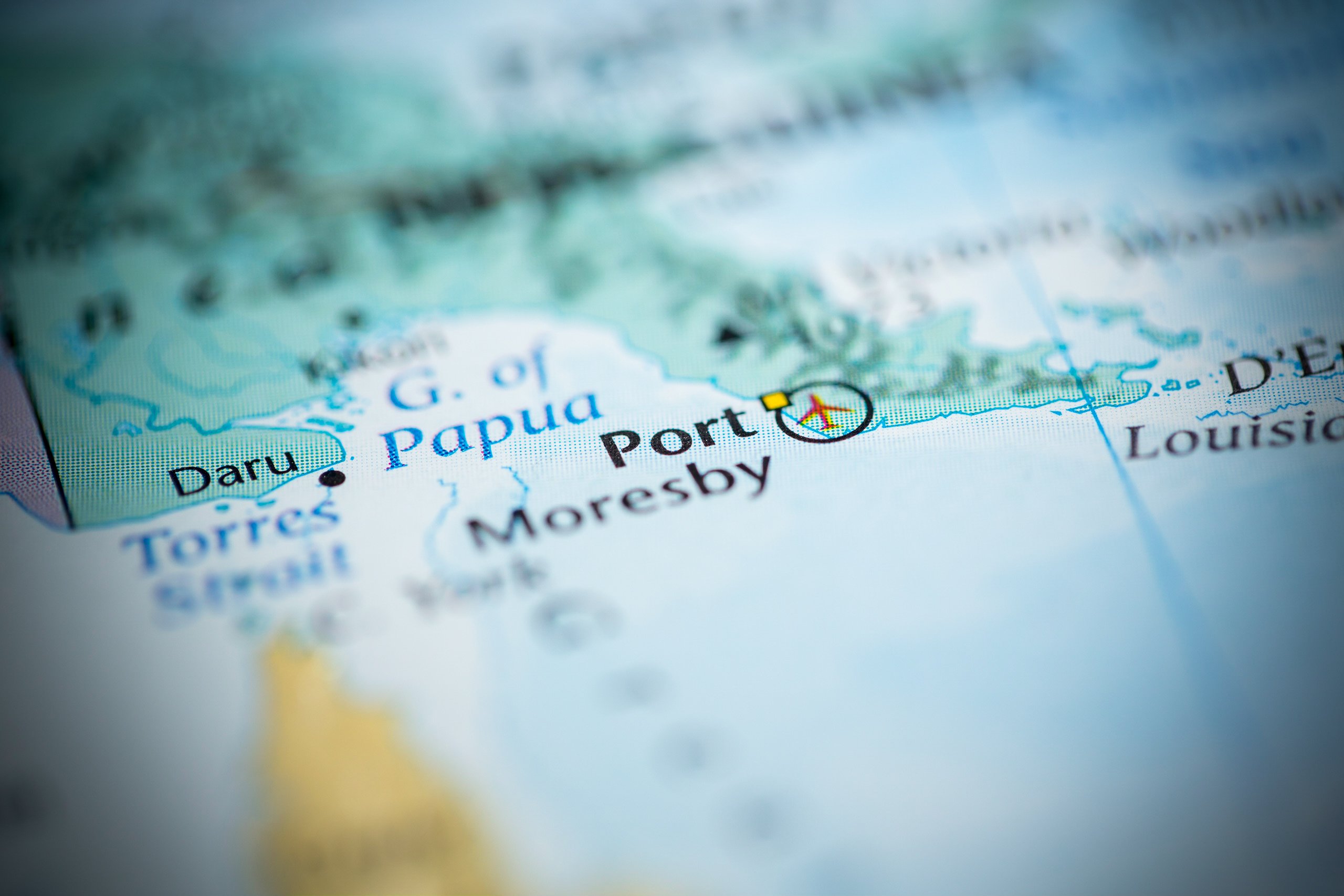
By
Diyaa Mani
June 30, 2023
Updated
September 18, 2024
Source: Shutterstock
Recap
Papua New Guinea offers a favourable business climate, diverse industries, and a talented workforce. By investing in skills development, fostering collaboration, and enhancing education and training systems, the country can tap into highly skilled individuals with adaptability and versatility. Businesses can attract and retain local talent by offering career prospects, competitive remuneration, and improved working conditions. With a focus on innovation and technological advancements, Papua New Guinea fosters a culture of creativity, positioning businesses to seize opportunities and drive competitiveness, innovation, and prosperity.
Papua New Guinea is on the brink of embracing the future of work with confidence and optimism
With a diverse workforce equipped with specialised technical skills and a solid foundation in soft skills, the country is well-prepared to meet the evolving demands of the job market.
In this dynamic landscape, businesses can navigate changing market landscapes and capitalise on emerging opportunities by leveraging their adaptability and transferable skills. Papua New Guinea's commitment to education excellence, inclusivity, and industry relevance ensures that individuals are prepared for success in key sectors such as mining, agriculture, tourism, and services.
This positive environment, fuelled by collaborative efforts, fosters a culture of innovation and positions businesses at the forefront of technological advancements. By empowering its workforce, Papua New Guinea sets a path toward a prosperous future where individuals thrive, businesses succeed, and the nation prospers.

Source: Shutterstock
Emerging technologies and their impact on the workforce
Harnessing the power of emerging technologies, Papua New Guinea is embarking on a remarkable journey where collaboration between businesses, government, and recruiters drives positive change in the workforce. These technologies, such as digitalisation, automation, and artificial intelligence, empower individuals and industries with boundless opportunities for growth and advancement.
Digitalisation
Digitalisation, the cornerstone of this transformation, is revolutionising work by embracing digital tools, data analytics, and cloud computing. This progressive shift enhances efficiency, streamlines processes, and paves the way for the digitisation of diverse industries, opening doors to exciting prospects.
Automation
Automation, another transformative force, empowers Papua New Guinea to thrive in a rapidly evolving job landscape. Through robotic process automation (RPA), machine learning, and robotic systems, automation is reshaping the nature of work. While repetitive and manual tasks are automated, new vistas for upskilling and reskilling emerge, enabling individuals to embrace novel opportunities and expand their horizons.
Artificial Intelligence (AI)
Embracing the frontier of Artificial Intelligence (AI), Papua New Guinea is cultivating computer systems capable of performing tasks that traditionally required human intelligence. With natural language processing, machine learning, and computer vision at their disposal, AI empowers industries to unlock higher productivity levels, make informed decisions, and foster innovation across various sectors.
Emerging industries and job opportunities
As Papua New Guinea embarks on this exciting journey, emerging industries are flourishing, aligned with global trends and local needs. Some of the emerging industries include:
Renewable energy
With abundant hydro, solar, and biomass resources, renewable energy provides a platform for job creation in installation, maintenance, project management, and research and development.
Information and communication technology (ICT)
The expanding Information and Communication Technology (ICT) sector, driven by increased connectivity and digitalisation, offers diverse roles in software development, cybersecurity, data analysis, network administration, and digital marketing.
Creative industries
The creative industries, including arts, music, film, design, and media, thrive in Papua New Guinea, pivotal in cultural preservation, tourism, and economic growth. These vibrant sectors generate employment opportunities in creative production, event management, marketing, and digital content creation, fostering a flourishing ecosystem of creativity and innovation.
Green tourism
Papua New Guinea's natural beauty, rich cultural heritage, and unique biodiversity position it as an alluring destination for green tourism. Job opportunities in this sector abound, encompassing hospitality, ecotourism guides, wildlife conservation, sustainable tourism planning, and community-based initiatives. Embracing sustainable practices, Papua New Guinea is at the forefront of eco-tourism and sustainable travel, contributing to environmental preservation and economic prosperity.

Source: Shutterstock
Skills and knowledge driving success in future jobs
As the workforce continues to evolve, Papua New Guinea embraces a future brimming with promising job opportunities. The following essential skills and knowledge empower individuals to thrive in these dynamic roles:
Digital literacy
Embracing the digital revolution is crucial in today's work environment. Mastering digital tools, platforms, and software equips individuals with the skills to navigate the digital landscape confidently.
Problem-solving and critical thinking
Papua New Guinea cultivates a culture of innovation by valuing individuals who can analyse complex problems, think critically, and devise ingenious solutions. This invaluable skill set fuels progress and drives the nation forward.
Communication
Effective communication is the cornerstone of collaboration, customer engagement, and sharing ideas. Papua New Guinea recognises the significance of honing verbal and written communication skills to foster meaningful connections and achieve collective success.
Adaptability
Papua New Guinea's workforce thrives in a dynamic and ever-changing environment. Embracing change and proactively acquiring new skills are key elements of adaptability. Staying attuned to evolving technologies and work processes ensures individuals remain ahead of the curve.
To seize the abundant job prospects in Papua New Guinea's evolving market, individuals can enhance their employability and adaptability by refining their skills and expanding their knowledge. This collective effort is reinforced by the collaboration between educational institutions, training providers, businesses, the government, and recruiters. Together, they champion programs and initiatives that empower the workforce to thrive and succeed amidst the forthcoming changes.
The role of talent mapping and access services
Talent mapping and access services are essential for recruitment and employment. They help match job seekers to the right employers. Employers can use it to find people with the right skills, experience, and preferences for job roles. They can also use it to connect with them. The importance of talent mapping and access services in Papua New Guinea includes:
Efficient job matching
Talent mapping services enable employers to identify qualified candidates quickly and efficiently. These services align the skills, qualifications, and preferences of job seekers with the requirements of employers. This streamlines the recruitment process and increases the likelihood of successful job matches.
Cost and time savings
Utilising talent mapping and access services can significantly reduce recruitment costs and save employers and job seekers time. These services eliminate the need for traditional and costly recruitment methods. This includes advertising, manual sorting of resumes, and lengthy screening processes. They provide a centralised platform for job postings and candidate applications.
Risk mitigation
Talent mapping services can help employers reduce the risks of hiring. They provide access to comprehensive candidate profiles. These profiles include a candidate's employment history, qualifications, and references. This information enables employers to make well-informed decisions. This reduces the risk of hiring individuals who may need to be more suitable for the job or the organisation.
Improved retention and job satisfaction
Talent mapping services improve employee retention rates and job satisfaction by ensuring a better fit between job seekers and employers. Individuals are more likely to stay engaged and committed to their roles when their skills, interests, and values match the position. This leads to increased productivity and organisational success.
Data-driven decision making
Talent mapping and access services provide valuable data and analytics to inform decision-making processes. Employers can gain insights into talent pools, market trends, and candidate preferences. This allows them to make data-driven decisions when adapting their recruitment strategies. Ultimately, this helps them to attract and retain top talent.

Source: Shutterstock
Overview of services provided by talent mapping and access services
Talent mapping and access services offer a range of tools and resources to facilitate effective recruitment and talent management. Some of the common services provided include:
Job portals
Online platforms that connect job seekers with job opportunities employers post. These portals allow candidates to browse and apply for positions based on their qualifications and preferences.
Applicant tracking systems (ATS)
Software platforms that streamline and automate recruitment. ATS systems assist in managing candidate applications, tracking progress, and facilitating communication between employers and job seekers.
Psychometric assessments
These assessments measure various aspects of a candidate's personality, aptitude, and cognitive abilities. These assessments provide insight into candidates’ suitability for specific job roles and organisational culture.
Talent analytics
Utilising data and analytics to analyse talent trends, identify skill gaps, and support informed decision-making. Talent analytics provide valuable insights into workforce planning, succession planning, and talent development strategies.
Talent mapping and access services can help employers and job seekers in Papua New Guinea. This approach is more efficient, effective and data-driven. It can benefit both parties in terms of talent acquisition and management. These services contribute to better job matching, increased retention, and improved overall recruitment outcomes in the country.
Papua New Guinea has a future filled with opportunities and a business climate with immense potential
The country recognises the importance of addressing various factors to create an even more favourable environment for investment, entrepreneurship, and economic growth. Papua New Guinea can attract domestic and foreign investments by focusing on strengthening infrastructure, enhancing access to finance, promoting transparency, and fostering political stability. This, in turn, will lead to increased job creation and a diversified economy, benefiting the nation.
Papua New Guinea understands the significance of equipping its workforce with the skills needed for the future of work. Embracing emerging technologies like digitalisation, automation, and artificial intelligence presents exciting possibilities for reshaping job roles and industries. The country is committed to providing its workforce with digital literacy, problem-solving abilities, critical thinking skills, effective communication, and adaptability. This empowers individuals to remain competitive, adaptable, and resilient despite rapid innovation, ensuring continued success.
The value of talent mapping and access services to facilitate seamless talent acquisition and enhance job matching is indisputable. These services connect job seekers and employers based on skills, experience, and preferences, reducing recruitment costs, improving job matching outcomes, and data-driven decision-making. Such services contribute to a more efficient labour market, fostering better staff retention and overall productivity in the country.
Papua New Guinea places great importance on collaboration and partnership to drive positive change. Evidence-based policies can be designed and implemented effectively by engaging the government, educational institutions, the private sector, and civil society. This collaboration also enables the creation of lifelong learning opportunities that align with the evolving demands of the labour market. By harnessing the collective strengths of all stakeholders, Papua New Guinea can fully leverage the potential of its workforce and prepare for a prosperous future.
We can help you grow in PNG
As a global company with a local touch, we have successfully supported businesses around the world during various stages of growth. Contact us today to learn more about our services and how we can work together.
